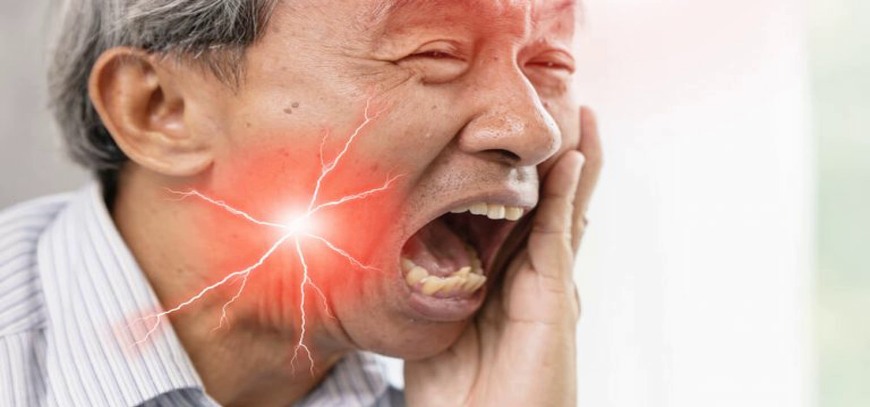Severe Pain

Few things are worse than tooth pain. It bothers you at work, at home, when you’re trying to sleep. It makes the best part of the day (whenever you’re eating) feel like trying to disarm a bomb. And obviously, it’s painful. The only thing worse than suffering with tooth pain is suffering without even knowing why.
At Dentist on the Green, we can help with both of those problems. Whenever you have tooth pain, the first thing you should do is figure out the whens and wheres. Knowing these “Ws” will help you figure out the big W: why.
Common forms of tooth pain
Temperature sensitivity
Pay close attention to the type and duration of your sensitivity. Are you sensitive to hot and cold sensations, or just one or the other? Does the pain triggered by the sensation stop quickly, or does it linger for 30 seconds or more? Temperature sensitivity can be caused by several different tooth problems. The more intense, lasting, and consistent the pain is, the more likely it is that the problem causing it is serious.
The most common reasons for sensitive teeth are worn-down enamel and gum recession. In these cases, you’re sensitive to hot and cold temperatures, but the pain is relatively minor and fades quickly. Switching to a toothpaste for sensitive teeth and avoiding really hot, cold, or highly acidic foods and beverages may help quickly. If your sensitivity doesn’t improve within a week, then its underlying cause may be more serious. Tooth decay, fractures, worn fillings, exposed roots, or gum disease can all cause temperature sensitivity.
Dull and persistent aches
This is the most common and “typical” tooth pain. Again, pay attention to the duration and severity of the pain. How long does it last? Does it come in waves, or is it truly constant? Are there specific times when it’s more or less painful? Is it triggered by anything in particular, like certain movements, foods or temperatures? Can you identify where the pain is precisely? Is it localised to one tooth, or is it more generalised?
If the pain is minor and constant and there’s gum swelling, it’s possible there’s simply something stuck in your gums or between your teeth. Floss thoroughly and wait to see if pain subsides. If the pain extends to the jaw, it’s possible you grind your teeth at night. Ask our dentist about a nightguard. Unfortunately, dull pain could have a much more severe source, particularly if it’s constant. Often, constant pain means your tooth has abscessed. Abscessed teeth have an infection inside them that has spread to the tooth’s root. If you think you could have an abscessed tooth, schedule an appointment immediately.
Inconsistent “Jabbing” pain
Unlike aching or minor sensitivity, “sharp” or “jabbing” pain usually signals a problem that won’t go away on its own. Pay attention to when you feel pain. Does it occur when you bite down on something? When you yawn? Can you trigger it just by touching the affected tooth? You could also check to see if the affected tooth is one that has a filling or crown already. Jabbing pain is frequently a sign that a filling has come loose, or a crown has fallen off.
Sharp pain most frequently comes from some form of physical tooth damage. The cusp of the tooth could be fractured, or there could be decay or wear around the gumline. The enamel of the tooth may have also cracked, or you could have a cavity. The faster you address jabbing tooth pain, the smaller the chance it turns into something considerably more serious.
Intense, throbbing pain
Obviously, if you’re experiencing pain severe enough to be distracting, you should contact an emergency dentist immediately. Throbbing pain may be accompanied by swelling of the gum or even the face near the affected tooth. This swelling could be a sign of a very serious infection, which should be treated by a professional immediately. Discoloration of the gums, bleeding gums, and pain when chewing are also signs of serious infection.
Infections inside the mouth frequently happen when the bacteria that cause tooth decay get into the pulp inside the tooth or the gums or bone surrounding the tooth. The pulp of the tooth is made up of living tissue and connective cells. Nerves inside the pulp are quite sensitive, hence the intense pain when they’re distressed. Given enough time, infections in gums or pulp often spread to the bone. Abscessed teeth or infected roots require a professional root canal treatment. Failing to treat mouth infections quickly can result in even more severe and painful mouth problems, so don’t delay, visit Dentist on the Green at once.
Treatments for toothache
Depending on the cause of your toothache, our dentist may recommend one of the following treatments:.
-
-
-
-
-
-
-
-
-
-
-
- A filling – Fillings are usually recommended in the case of tooth decay and cavities.
- A crown – If a tooth is too severely damaged for a filling, a crown may be placed over the whole tooth.
- Treatment for gum disease – Inflammation of the gums due to a buildup of plaque below the gum line can also lead to tooth pain.
- Root canal treatment – If the blood vessels and pulp inside the tooth have become damaged, you may need root canal treatment.
- Tooth removal – Sometimes your dentist will recommend removing a tooth to prevent further infection.
- Orthodontic treatment – Crowding and alignment problems can also lead to tooth pain and can be corrected with orthodontic treatment.
- A mouthguard – If the pain is being caused by teeth grinding, your dentist may recommend a mouthguard at night.
-
-
-
-
-
-
-
-
-
-
Cavities do not necessarily have to become dental emergencies if treated in time. Delays could result in fractures, abscesses or even tooth loss. You may think getting immediate treatment is costly, but think of how much more it would be if the condition worsens.
Using medications such as ibuprofen (Advil, Motrin), acetaminophen (Tylenol), and aspirin can relieve minor pain from a toothache. Using numbing pastes or gels — often with benzocaine — can help to dull the pain long enough for you to fall asleep.
Toothaches can be painful in the day, but they may seem to get worse at night. One reason that this may occur is because when a person is lying down, blood rushes to the head. This extra blood in the area may increase the pain and pressure that people feel from a toothache.
